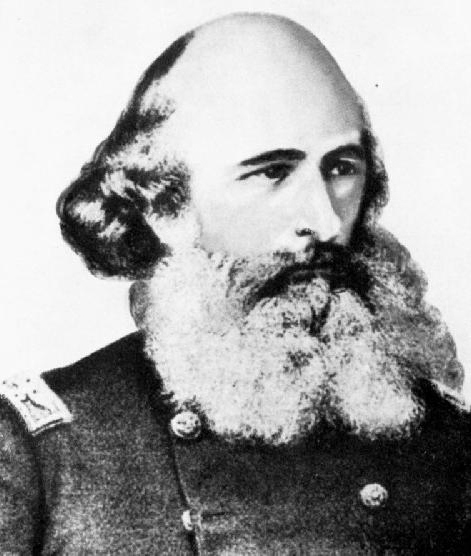2. “Joseph Weydemeyer: Pioneer Advocate for a U.S. Labor Party

Chapter Two
Ethnic diversity is one of the identifying characteristics of the working class in the United States. As a nation consisting largely of immigrants from Europe, Africa, Latin America, Asia, and the Pacific Islands, cultural pluralism has long been an important attribute of the workers’ movement in the U.S. The resultant multi-ethnic mosaic has been a culturally enriching experience. On the other hand, ethnic tensions have been exploited by the dominant business class to divide and thus weaken the working class. German Marxists, the so-called 48ers who immigrated following the unsuccessful European revolutions of 1848, sought to overcome this vulnerability by reaching out to all workers in a class-based labor party. Their goal was both a trade union federation and a workers’ political party which united Germans and Americans (Karson: 9).
Chief among the immigrant German Marxists was Joseph Weydemeyer. Born in 1818, the same year as Karl Marx, this son of a Prussian civil servant was sent to the Berlin Military Academy to prepare for an army career. Upon Weydemeyer’s commission in 1838, he was stationed near Cologne in the Rhineland where he began to read and respond to the radical ideas of Karl Marx. Along with other leftist Prussian officers, he participated in a study circle which discussed social and political problems of the time. Weydemeyer’s growing socialist convictions led him to resign his commission in 1844 (Herreschoff: 53, 54).
In the period between 1844 and 1848, Weydemeyer wrote for several socialist newspapers, consulted personally with Marx first in Paris and later in Brussels, and then returned to Germany as an organizer for the Communist League. His work as a railroad construction engineer abruptly ended with the 1848 Revolution when railroad workers were ordered to stay out of political demonstrations. During the rest of 1848, and for more than a year thereafter, Weydemeyer was a full-time revolutionary journalist. Even when the forces of the counter-revolution in 1849 systematically began to suppress all efforts at democracy, Weydemeyer continued publishing until 1850, and then in 1851, he was forced into exile in Switzerland (Herreschoff: 54, 55).
Unable to work or publish because of his efforts for the revolutionary cause, Weydemeyer acccepted reluctantly the idea of emigrating to North America, as a place that he thought would be only temporary exile. Marx recommended New York City as the most likely setting for a new German-language revolutionary journal. Frederich Engels reassured Weydemeyer, “After all … New York is not out of the world” (Herreschoff: 55). Weydemeyer arrived in New York on November 7, 1851 and a new German-language paper Die Revolution appeared in New York City’s Kleindeutschland (Little Germany) on January 6, 1852 (Wilentz: 385).
Though initially preoccupied with refugee politics, Weydemeyer developed a concern for larger political issues which drew him out of the circle of frustrated exiles. Elections in the United States, divorced as they were from workers’ interests, were largely meaningless. Economic dependence degraded universal suffrage for the worker to little more than the right to “sell his vote to capital” (Herreschoff: 60, 61). When neither the Democrats nor the Whigs proposed any labor planks in their 1852 platforms, Weydemeyer concluded that workers must organize on political as well as economic lines (Herreschoff: 61).
In the midst of the 1853 strike of immigrant cabinet-makers, tailors and stone cutters, the friends of Karl Marx in New York City of the Proletarierbund called a mass meeting in the Mechanic’s Hall. The more than 800 German-Americans in attendance agreed to found the American Workers League as a quasi-trade union and a quasi-political party (Herreschoff: 62). Weydemeyer appealed both for the solidarity of all workers and for independent political action. “The time has come for workers of all nations to unite in one strong league …. It is … essential that we form one organization without distinction as to crafts and national origins, that we may rise up against our tyrannical oppressors, the capitalists and monopolists, in united fashion, and also in order to obtain our just demands at the polls by electing or own candidates” (Obermann: 57).
Weydemeyer opposed the tendency to limit the League’s activities to German-Americans. He insisted that neither occupation, language, color, nor sex be a bar to membership. His focus remained the “principles of class struggle” as pursued through the trade union movement and by labor-based political action. He clearly articulated the case for a labor party, “… if our own representatives sit in the federal and state legislative halls of the United States. Only then will the legislatures … cease legislating exclusively for the benefit of the capitalists and the monopolists; and only then will the workers, who constitute a majority of the people, safeguard their human rights ….” (Obermann: 60, 61).
After two months of organizational work, the American Workers League had established branches in 11 of the 20 New York City wards (Obermann: 60). Weydemeyer confronted the widespread worker cynicism in regard to “politics” which held that politics benefited only the professional politicians and did not help the workers to improve their position in society (Obermann: 75). Weydemeyer responded by patiently explaining that strikes alone would not liberate the proletarians, nor would utopian schemes or reliance on the naive principles of virtue, independence, and commonwealth. The first step was for the wage slaves to understand that they were nothing more than that. Then they had to form a genuine workers’ party, one that aimed to seize control of the state and transform it utterly, stripping the bourgeoisie of all claims to power (Wilentz: 386).
Another impediment to the emergence of class consciousness was the illusions associated with American democracy. Weydemeyer explained that though “America is free from the princely yoke and has no hereditary ranks …. that does not change the fact that the man without property has nothing but his labor power and is oppressed and exploited here as he is on the other side of the ocean.” When all was said and done, “the only difference is that over there the bourgeois is monarchist and over here republican” (Herreschoff: 63). Despite his efforts at reassurance, many German trade unionists held back from the Workers League. Carpenters, tailors, shoemakers, painters, and cigar-makers all sent delegates to the League’s central committee, but their participation was tepid at best (Obermann: 61, 62).
The Workers League program was designed to address the class interests of both the native-born and immigrant worker. Their political demands were designed to overcome ethnic mistrust by emphasizing shared class interests. For the German immigrant, the full rights of citizenship should be granted immediately upon the legal statement of the intent to become naturalized. Because the “interests of workers are everywhere the same,” all labor legislation should be enacted by the federal government rather than by the individual states. The government should assume the total cost of litigation, including the choice of legal counsel, so that the affluent cannot monopolize the best lawyers. The work day should be restricted to a maximum of 10 hours. Labor by children under age 16 should be prohibited. All laws such as Sunday laws and temperance laws which encroach on the workers’ enjoyment of their liberty should be repealed. Colleges should be tuition free and the state should acquire all private colleges (Obermann: 64; Herreschoff: 62, 63). These were the common goals shared by both German and American workers.
By October 1853, the American Workers League had perceptibly declined as a political as opposed to a cultural, mutual aid, or philanthropic society. Weydemeyer, the acknowledged political leader of the League, had been unsuccessful in his effort to broaden its political influence. German and American laborers continued to separate on the basis of language and culture. Rather than the development of the social consciousness of the workers as a class, immigrant Germans concentrated on building their own ingrown formations of skilled workers who had learned their trade in the old country (Dobbs: 50). Weydemeyer’s concept of the League as both a means of fostering the class consciousness of the entire working class, and a dynamic force in the development of the labor movement had foundered on the rocks of ethnic divisions (Obermann: 77).
In the volatile social context of growing nativist prejudice against the foreign-born and the xenophobic agitation of the “Know Nothing” party, the League’s failure to reach the native-born worker was perhaps inescapable. When, in 1855, the Workers League members armed themselves and formed a secret military organization to resist attacks by nativists, Weydemeyer withdrew from the League (Herreschoff: 64; Obermann: 86). Though there would be a political realignment in the 1850s, the beneficiary was the anti-slavery Republican Party, not a Labor Party.
Weydemeyer, subsequently, supported Abraham Lincoln in the 1860 presidential election. In the Civil War, he served the Union Army as an engineer and artillery officer. Following the war, Weydemeyer was elected to the position of county auditor in St. Louis, Missouri, as a Radical Republican. William Sylvis and the National Labor Union in the post civil war era would revive the idea of a Labor Party based on the existing trade unions. Ironically, Joseph Weydemeyer died of Cholera, August 20, 1866, at age 48 , the very day the National Labor Union held its inaugural convention (Herreschoff, 67).
Works Cited
Dobbs, Farrell. Marxist Leadership in the U.S.: Revolutionary Continuity, the Early Years 1848-1917. New York: Monad Press, 1980.
Herreschoff, David. American Disciples of Marx: from the age of Jackson to the Progressive era. Detroit: Wayne State University Press, 1967.
Karson, Marc. American Labor Unions and Politics, 1900-1918. Boston: Beacon Press, 1958.
Obermann, Karl. Joseph Weydemeyer: Pioneer of American Socialism. New York: International Publishers, 1947.
Wilentz, Sean. Chants Democratic: New York City & the Rise of the American Working Class, 1788-1850. New York: Oxford Press, 1984.

